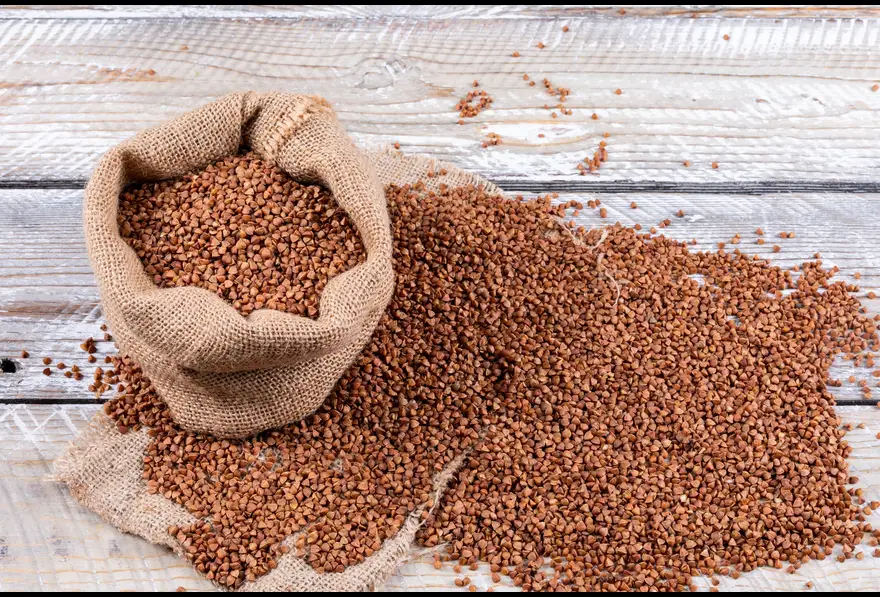Dengue NS1 Test
Also known as: Dengue NS1 Antigen Test
Dengue NS1 Antigen Test Details in Brief
| Also Known As | Dengue NS1 Antigen, Dengue NS1 Antigen Test |
|---|---|
| Purpose | Detects early-stage dengue virus infection and differentiates dengue from other febrile illnesses. |
| Preparation | Minor bleeding, such as nosebleeds, bleeding gums, or easy bruising |
| Fasting | Not required |
| Reporting Time | Approximately 6 hours after sample receipt |
| Cost | 800 |
What Is a Dengue NS1 Test?
A dengue NS1 test is a diagnostic blood test that detects the presence of the dengue virus in your body during the early stages of infection. "NS1" stands for Non-Structural Protein 1, which is a specific protein produced by the dengue virus when it multiplies in your system.
The dengue NS1 test uses a blood sample (serum) collected from a vein in your arm. This test helps detect and diagnose an active dengue infection, particularly within the first week of symptoms appearing.
What Does the Dengue NS1 Test Measure?
The dengue NS1 test specifically measures several important aspects of dengue infection:
- Presence of NS1 antigen: Detects the dengue virus protein circulating in your bloodstream.
- Active viral infection: Confirms that the dengue virus is currently multiplying in your body.
- Early-stage detection: Identifies dengue infection from the first day of fever up to around day seven.
- Direct viral evidence: Provides direct proof of dengue virus presence rather than your body's immune response.
Dengue NS1 Test: Who Needs It and Why It's Done
What Symptoms May Call for a Dengue NS1 Test?
Your doctor may recommend a dengue NS1 test if you experience a combination of the following symptoms, especially during the monsoon or post-monsoon seasons:
- Sudden high fever (up to 104°F or 40°C)
- Severe headache
- Pain behind the eyes (retro-orbital pain)
- Severe joint and muscle pain (often called "breakbone fever")
- Fatigue and weakness
- Nausea and vomiting
- Skin rash appearing 2-5 days after fever starts
- Minor bleeding, such as nosebleeds, bleeding gums, or easy bruising
Who Should Get a Dengue NS1 Test?
The following groups should consider getting tested for dengue NS1:
- Patients with fever symptoms: Anyone showing characteristic signs of dengue fever within the first week of illness.
- People in endemic areas: Individuals living in or having recently travelled to dengue-prone regions.
- Children and adults: All age groups who are showing a sudden high fever with associated symptoms.
- Monsoon season cases: People developing fever during peak dengue transmission periods.
Why Is a Dengue NS1 Test Done?
The dengue NS1 test enables early and accurate diagnosis of dengue fever. It allows healthcare providers to confirm infection, differentiate it from other similar illnesses, and begin timely supportive treatment to prevent severe complications.
Importance of a Dengue NS1 Test
The dengue NS1 test holds significant clinical importance, particularly in India, where dengue is a major public health concern. Early detection through this test allows doctors to provide immediate supportive care, including proper hydration monitoring and platelet count tracking. This proactive approach is crucial for preventing the disease from progressing to severe stages, like dengue haemorrhagic fever or dengue shock syndrome.
The test also helps differentiate dengue from other febrile illnesses common in India, ensuring appropriate treatment protocols are followed. Additionally, timely reporting of confirmed cases assists public health authorities in tracking outbreaks and implementing necessary vector control measures in affected areas.
Dengue NS1 Test Booking & Reports – Metropolis Healthcare India
How to Book a Dengue NS1 Test?
- Simple Online Booking
Booking can be done through the Metropolis Healthcare App or website. Select 'Dengue NS1 Test', choose a convenient time slot, and provide your address for a blood test at home. You can also visit the nearest Metropolis Lab if you prefer to give the sample directly at the lab. - Safe Home Sample Collection
Our trained phlebotomists ensure the timely collection of your sample while strictly following all safety and hygiene protocols. - Sample Tracking Updates
Stay informed at every step. From collection to testing, you can track your sample directly through the Metropolis Healthcare website. - Accurate Laboratory Testing
Your sample is processed at our NABL- & CAP-accredited laboratories, where expert technicians ensure accurate results. - Quick & Easy Reports
Receive your test reports promptly via email, WhatsApp, or by downloading them directly from the Metropolis Healthcare website or app.
Is Home Sample Collection for the Dengue NS1 Test Available Near You?
Yes, Metropolis Healthcare's home sample collection for the dengue NS1 test brings convenience directly to your doorstep. Our trained phlebotomists visit your home at your preferred time, following strict safety protocols during sample collection. This service ensures you receive accurate, reliable results without the need to travel to a lab, which is especially important when you're feeling unwell with a fever.
How Long Does It Take to Get a Dengue NS1 Test Report?
Reports are usually available approximately 6 hours after the sample reaches the lab.
Where Can I See or Get Dengue NS1 Test Results?
Test results from Metropolis Healthcare can be accessed through multiple convenient channels. You can log in to the Metropolis website using your credentials or use the Metropolis Healthcare App to view and download your reports. Additionally, test reports are sent via email or WhatsApp, and you also have the option to collect a physical copy directly from the lab.
Interpreting Dengue NS1 Test Results
What Your Dengue NS1 Test Results May Indicate
The following table explains what your dengue NS1 test results mean and their clinical significance:
|
Parameter |
Reference Range |
Negative Result |
Positive Result |
|
Dengue NS1 Antigen |
Negative: < 1 Ratio, Positive: ≥ 1 Ratio (cut-off may vary by assay type) |
No dengue virus detected, normal result |
A positive result indicates an active dengue virus infection and requires prompt medical evaluation. |
Conditions that May Affect Dengue NS1 Test Accuracy
Several factors can influence your dengue NS1 test results and should be discussed with your doctor:
- Timing of sample collection: Samples collected after 7 days of symptom onset may yield false-negative results due to decreasing antigen levels.
- Other flavivirus infections: West Nile virus or Yellow fever may cause false-positive results.
- High levels of certain antibodies: Heterophile antibodies or rheumatoid factor may interfere with results.
- Cross-reactivity: Previous exposure to similar viruses may affect interpretation.
- Sample quality: Haemolysed, lipemic, or improperly stored samples can affect test accuracy.
How Is a Dengue NS1 Test Done?
The dengue NS1 test follows a standard blood collection procedure:
- Area cleaning: A healthcare professional cleans your arm area with an antiseptic.
- Tourniquet application: An elastic band is tied around your upper arm to make the veins visible.
- Blood collection: A sterile needle is inserted into a vein to collect 3 ml of blood.
- Sample processing: Blood is allowed to clot, and serum is separated for testing.
- Laboratory analysis: The serum sample is analysed using the Chemiluminescence Immunoassay (CLIA) method.
- Result reporting: Results are processed and made available approximately 6 hours after sample receipt.
How Should You Prepare for a Dengue NS1 Test?
Preparing for your dengue NS1 test is straightforward and requires minimal preparation:
- No fasting required: You can eat and drink normally before the test.
- Regular medications: Continue taking your prescribed medications unless advised otherwise.
- Inform about symptoms: Mention when your fever started and current symptoms to the healthcare provider.
- Stay hydrated: Drink adequate fluids to help with blood collection.
- Wear comfortable clothing: Choose clothes that allow easy access to your arms.
Diseases that a Dengue NS1 Test Can Help Detect
The dengue NS1 test specifically helps detect and diagnose the following conditions:
- Primary dengue infection: First-time exposure to the dengue virus.
- Secondary dengue infection: Re-infection with a different dengue virus serotype, which may cause more severe illness.
- Early-stage dengue: Detection within the first week of symptoms
- Active viral replication: Confirms ongoing dengue virus multiplication in the body.
Dengue NS1 Tests/Packages that You Can Book With Metropolis Healthcare
The following table shows related dengue tests and packages available for comprehensive screening:
|
Test/Package Name |
Purpose/Highlights |
|
Early detection of active dengue infection. |
|
|
Comprehensive dengue screening, including NS1, IgM, and IgG antibodies. |
|
|
Detects recent dengue infection and immune response. |
|
|
Highly sensitive molecular detection of dengue virus. |
Dengue NS1 Test Prices in Different Cities
The cost of a dengue NS1 test may vary depending on your location. Here's a table showing the approximate prices in different cities:
|
City |
Price (INR) |
|
₹250 - ₹1050 |
|
|
₹250 - ₹1050 |
|
|
₹250 - ₹1050 |
|
|
₹250 - ₹1050 |
|
|
₹250 - ₹1050 |
|
|
₹250 - ₹1050 |
References
- CDC: Dengue. Accessed 13/09/2019. Available at: www.cdc.gov/Dengue/
- World Health Organization. Dengue: guidance for diagnosis, surveillance and control WHO, Geneva (2009) Available at: http://www.who.int/zoonoses/resources/denguecontrol/en/
Dengue NS1 Antigen Test Price
Metropolis Healthcare is a leading diagnostics centre and pathology lab in India equipped with the latest state-of-the-art technologies that provides the Dengue NS1 Antigen Test with a clear pricing structure.
The Dengue NS1 Antigen Test Price in Mumbai is ₹ 800 .
We are committed to deliver accurate and quality results from the best labs in India with complete transparency regarding test cost and turnaround time. No matter where you are, we strive to offer patients high-quality service that is affordable and accessible.
Frequently Asked Questions
The best time is during the early acute phase, specifically from the first day of fever up to the 7th day of symptoms, when NS1 antigen concentration is highest.
No, fasting is not required for the dengue NS1 test. You can eat and drink normally before giving your blood sample for this test.
Dehydration doesn't directly affect NS1 results, but it's a serious dengue symptom. Stay well-hydrated as advised by your doctor for overall health management during illness.
No special dietary preparation is needed. However, inform your doctor about all medications, supplements, and herbal remedies you're taking for a complete clinical assessment.
A healthcare professional cleans your arm, applies a tourniquet, inserts a sterile needle into a vein, collects blood, then removes the needle and applies a bandage.
Risks are minimal, similar to routine blood tests with slight pain, minor bruising, lightheadedness, or, rarely, infection at the puncture site. Overall, a very safe procedure.
The test is qualitative, reporting as Negative (< 1 Ratio), which is normal, or Positive (≥ 1 Ratio), indicating an active dengue infection requiring medical attention.
Ratings & Reviews (0)
Why Metropolis?
Metropolis has a team of 200 senior pathologists and over 2000 technicians delivering diagnostic solutions in the areas of routine, semi specialty and super specialty domains like Oncology, Neurology, Gynaecology, Nephrology and many more.
We offer a comprehensive range of 4000+ clinical laboratory tests and profiles, which are used for prediction, early detection, diagnostic screening, confirmation and/or monitoring of the disease.



















 WhatsApp
WhatsApp